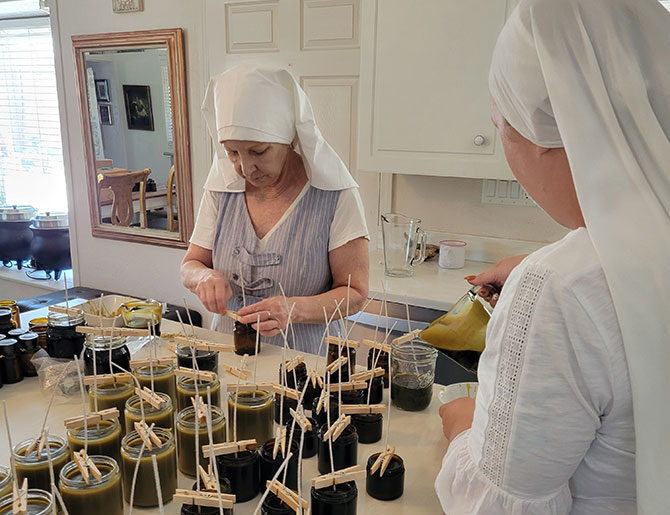Not Sure Where to Start?
Discover what works best for your body and lifestyle—whether you’re exploring for the first time or coming back for your favorites, we’ve got you covered.
Eleven Questions to Guide You to the Right Choice
Choosing the right candidate can feel overwhelming during an election season, with so much information, disinformation, and noise. But there are clear indicators you can use to make an informed decision. Below are 11 questions that will help lead you to an easy answer:
1. Which candidate offers information freely and which leaves you with question marks hanging over your head?
Transparency is crucial in politics. A candidate who provides clear and detailed plans for the future is one who respects voters and trusts them to make informed decisions. When a candidate deflects questions or refuses to provide specifics, it’s a red flag. If you’re left guessing about a candidate’s policies, motivations, or even basic facts, it’s likely they’re hiding something or are unsure of their stance themselves. Look for the one who speaks openly and invites scrutiny.
2. Which candidate provides plans and information neutrally, and which only emotes?
Leadership requires more than just fiery speeches and emotional outbursts. While passion can be appealing, it is not a substitute for well-thought-out policies. A leader who communicates with logic and reason—backing their promises with evidence and plans—can navigate complex issues with clarity. On the other hand, candidates who rely solely on emotional appeals may be trying to manipulate voters by riling up their fears and anger, rather than offering real solutions.
3. Which candidate has broken a fair amount of the Ten Commandments? Which hasn’t?
Whether you’re religious or not, the Ten Commandments serve as a moral guidepost for many. Candidates who frequently lie, steal, cheat, or otherwise engage in immoral behavior are not just breaking laws—they’re eroding the ethical fabric of leadership. Reflect on which candidate demonstrates integrity in their personal and professional lives. The ability to uphold basic moral principles is a strong indicator of how they’ll govern.
4. Which candidate is making partisan issues out of things that shouldn’t be partisan, like immigration and human rights? Which isn’t?
Immigration and human rights are not inherently partisan issues—they’re human issues. When candidates use these topics as tools to divide people and stoke political fervor, they are making things worse. Ask yourself: Who is speaking about these matters with compassion, practicality, and a sense of shared humanity? Who is creating solutions for all people, not just for their political base? Leaders who transcend partisan squabbling and focus on real solutions for the greater good are the ones who will unite, not divide.

5. Which candidate thinks the solution is to break all of our existing institutions and start over, and which believes in repairing and reforming our institutions?
Democracy thrives on strong institutions that have been built over time to serve and protect the public. While reforms are sometimes necessary to keep these institutions effective, candidates who advocate for completely dismantling them may have ulterior motives—especially if they stand to profit from the chaos or rebuilding. A leader who wants to improve and strengthen institutions is someone who respects the rule of law and democracy. Be wary of anyone who wants to “burn it all down” just for the sake of it, or for personal gain.
6. Which candidate openly admires fascists, criminals, and thugs? Which doesn’t?
Admiration for authoritarian leaders or those with criminal backgrounds can reveal a candidate’s willingness to condone or even emulate dangerous behaviors. Democracy relies on leaders who value justice, fairness, and the rule of law. A candidate who idolizes dictators or excuses criminal behavior may put personal power above democratic principles. On the other hand, a candidate who upholds the values of freedom, human rights, and justice demonstrates their commitment to protecting the liberties of all citizens.
7. Which candidate is more likely to facilitate a peaceful transfer of power? Which is more likely to aid and abet an insurrection?
A peaceful transfer of power is a cornerstone of democracy. It’s what keeps a nation stable and ensures that the will of the people is respected. A candidate who refuses to accept election results or who incites violence to remain in power is a direct threat to democracy itself. Consider which candidate will respect the outcome of a fair election, and who might stoke chaos to cling to power.
8. Which candidate thinks climate change is a hoax, and which candidate knows it’s not?
The science is clear: climate change is real, and its effects are accelerating. A candidate who denies this reality is not just ignorant—they are jeopardizing the future of the planet and all of its inhabitants. Leaders who acknowledge the reality of climate change and propose concrete actions to mitigate its effects are the ones thinking about the long-term survival and well-being of humanity. Climate denial is not just foolish; it’s reckless.

9. Which candidate is embroiled in multiple civil and criminal lawsuits, and which one isn’t?
Legal battles—whether civil or criminal—are often a sign of deeper problems. Candidates who are facing multiple lawsuits or investigations might not just be unlucky; they could be engaging in unethical or illegal behavior. Holding a public office comes with immense responsibility and scrutiny, and the last thing a country needs is a leader preoccupied with defending themselves in court rather than leading effectively. Ask yourself: Who is scandal-free and trustworthy?
10. Which candidate is historically bad at keeping a team together, and which has a favorable history in regard to team leadership and continuity?
Leadership isn’t just about making decisions—it’s about building and maintaining a cohesive team that can execute those decisions effectively. A candidate with a revolving door of advisors, cabinet members, or staff often signals deeper dysfunction or poor leadership skills. A strong leader fosters loyalty, stability, and teamwork, creating an environment where people can thrive and work toward common goals. Ask yourself: which candidate has a history of constant turnover, and who has been able to retain and build a solid, experienced team? Continuity in leadership is key to ensuring long-term success and effective governance.
11. Which candidate would you be happy to have over for dinner with children and grandparents present?
This might seem like a trivial question, but it speaks to character. Which candidate would you feel comfortable inviting into your home, around your loved ones? Who would you trust to speak honestly, respectfully, and intelligently in a relaxed, personal setting? A candidate who can demonstrate kindness, empathy, and respect in their personal interactions is more likely to bring those qualities to their public office. Leadership starts with character.
Conclusion:
At the end of the day, choosing a candidate is not just about their policies—it’s about their values, their integrity, and their vision for the future. By asking yourself these 11 questions, you’ll be able to cut through the noise and identify the candidate who is truly equipped to lead, not just for the next four years, but for the lasting benefit of the country. Voting is one of the most powerful actions you can take—make it count by choosing wisely.
To watch the Youtube video summary of this article, click here.
Not Sure Where to Start?
Discover what works best for your body and lifestyle—whether you’re exploring for the first time or coming back for your favorites, we’ve got you covered.







Comments are closed.